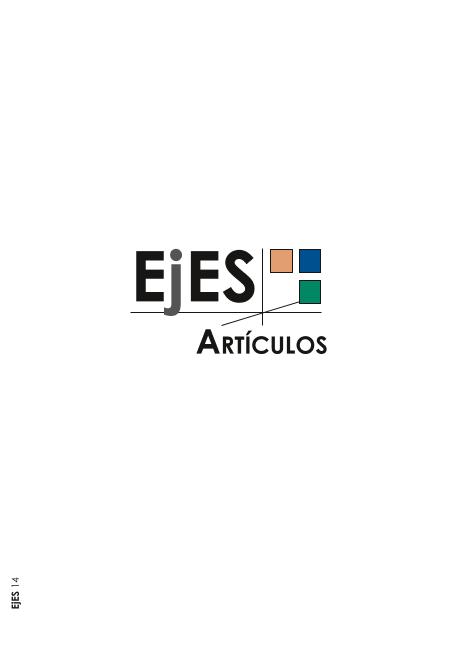Mostrar el registro sencillo del ítem
dc.contributor.author
Ghivaudi, Javier
dc.contributor.author
Lavarello, Pablo Jose

dc.contributor.author
Garcia, Ariel Oscar

dc.date.available
2019-12-09T20:39:56Z
dc.date.issued
2018-12
dc.identifier.citation
Ghivaudi, Javier; Lavarello, Pablo Jose; Garcia, Ariel Oscar; Autonomía y enraizamientos en la búsqueda del cambio estructural: Un análisis a partir de la política industrial en Argentina y Brasil a principios del siglo XXI; Universidad de Entre Ríos. Facultad de Ciencias; Ejes de Economía y Sociedad; 2; 3; 12-2018; 17-39
dc.identifier.issn
2591-4669
dc.identifier.uri
http://hdl.handle.net/11336/91792
dc.description.abstract
Las experiencias de Brasil y Argentina reflejan que el regreso de la política industrial a la agenda de política no puede reducirse a un mero problema de diseño y exige discutir las condiciones de implementación que viabilizan un proceso de cambio estructural. A pesar de la importancia de este debate, el «regreso» de la política industrial fue motivado por el colapso de las experiencias neoliberales antes que por una búsqueda de transformación de la especialización productiva que supere los problemas estructurales de estas economías. A partir de dicho colapso –evidenciado en el pasaje de una etapa ofensiva del neoliberalismo a otra defensiva– y el de políticas de redistribución de ingresos y expansión de la demanda interna, renace el debate de la política industrial como herramienta para superar la manifestación de los problemas en la restricción externa a partir de 2008. Este artículo parte del dilema que plantean estas experiencias de crecimiento a medida que reaparecen los efectos de la reestructuración regresiva a través de la escasez de divisas. Por un lado, frente a la necesidad de superar (o al menos posponer transitoriamente) los problemas de restricción externa, se impone la búsqueda de grados de autonomía que generen capacidades en nuevos sectores y al mismo tiempo desafíen las ventajas comparativas estáticas. Por el otro, al ejecutar estas políticas se debilita la posibilidad de lograr cierto grado de enraizamiento necesario con los grupos para la implementación de las mismas.
dc.description.abstract
The experiences of Brazil and Argentina reflect that the return of industrial policy to the policy agenda can not be reduced to a mere design problem and requires discussing the conditions of implementation that make possible a process of structural change. Despite the importance of this debate, the “return” of industrial policy was motivated by the collapse of neoliberal experiences rather than by a search for transformation of productive specialization that overcomes the structural problems of these economies. From this collapse - evidenced in the passage from an offensive stage of neoliberalism to another defensive one - and the policies of redistribution of income and expansion of domestic demand, the industrial policy debate is reborn as a tool to overcome the manifestation of the problems in the external restriction as of 2008. This article is part of the dilemma posed by these growth experiences as the effects of regressive restructuring reappear through the scarcity of foreign currency. On the one hand, faced with the need to overcome (or at least temporarily postpone) the problems of external constraint, the search for degrees of autonomy that generate capacities in new sectors and at the same time challenge static comparative advantages is imperative. On the other hand, executing these policies weakens the possibility of achieving a certain degree of necessary rooting with the groups for their implementation.
dc.format
application/pdf
dc.language.iso
spa
dc.publisher
Universidad de Entre Ríos. Facultad de Ciencias
dc.rights
info:eu-repo/semantics/openAccess
dc.rights.uri
https://creativecommons.org/licenses/by-nc-nd/2.5/ar/
dc.subject
ENRAIZAMIENTO
dc.subject
AUTONOMÍA
dc.subject
POLÍTICA INDUSTRIAL
dc.subject
POLÍTICA CREDITICIA
dc.subject.classification
Organización Industrial

dc.subject.classification
Economía y Negocios

dc.subject.classification
CIENCIAS SOCIALES

dc.title
Autonomía y enraizamientos en la búsqueda del cambio estructural: Un análisis a partir de la política industrial en Argentina y Brasil a principios del siglo XXI
dc.title
Autonomy and embedness in the search for structural change: An analysis based on industrial policy in Argentina and Brazil at the beginning of the 21st century
dc.type
info:eu-repo/semantics/article
dc.type
info:ar-repo/semantics/artículo
dc.type
info:eu-repo/semantics/publishedVersion
dc.date.updated
2019-10-16T14:41:33Z
dc.journal.volume
2
dc.journal.number
3
dc.journal.pagination
17-39
dc.journal.pais
Argentina

dc.journal.ciudad
Paraná
dc.description.fil
Fil: Ghivaudi, Javier. Universidade Federal do Rio de Janeiro; Brasil
dc.description.fil
Fil: Lavarello, Pablo Jose. Consejo Nacional de Investigaciones Científicas y Técnicas. Oficina de Coordinación Administrativa Saavedra 15. Centro de Estudios Urbanos y Regionales; Argentina
dc.description.fil
Fil: Garcia, Ariel Oscar. Consejo Nacional de Investigaciones Científicas y Técnicas. Oficina de Coordinación Administrativa Saavedra 15. Centro de Estudios Urbanos y Regionales; Argentina
dc.journal.title
Ejes de Economía y Sociedad
dc.relation.alternativeid
info:eu-repo/semantics/altIdentifier/url/http://pcient.uner.edu.ar/ejes/article/view/562
Archivos asociados
